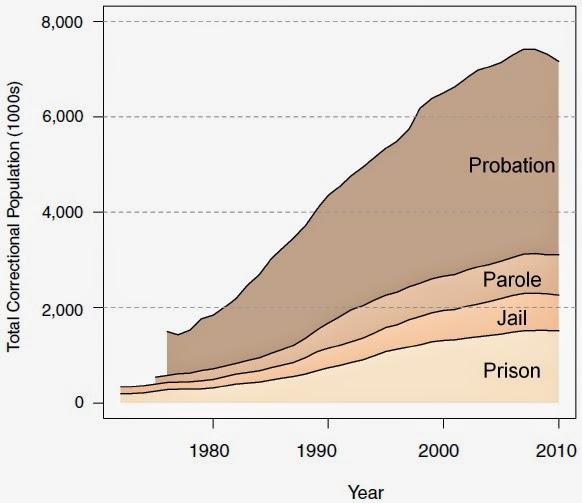Below
are Eric Garner's final words, before his life was snuffed out by a New
York City cop. It reads like a dark unwritten sequel to Langston
Hughes' "I, Too, Sing America" --the sequel that ends not with ashamed
whites welcoming him to the table, but rather with him kicking the table
over, and understanding that white supremacy is beyond shame.
I am a white man. All my adult life I have tried, in my own stumbling way -- and with all of my limitations -- to be a race traitor.
What do I mean by that?
I don't mean trying to be 'color blind,' which really amounts to nothing more than complicity with oppression. White man, don't tell me you 'don't see race.' What the hell are you looking at?
And by 'race traitor' I don't mean trying to get right with God by cleansing my mind and soul of bias. What good is it to have one's conscience clean, and one's hands dirty? What good is it to walk away from Omelas? What does that change?
No.
To be a traitor is not to walk away from something you reject.
To be a traitor is to walk right up to what you reject, and kick it over. Treason to whiteness, as Noel Ignatiev once wrote, is loyalty to humanity. And treason, by definition, is a political act.
NONE of us will breathe, until white Americans collectively recognize the devastating power that racial subordination has over daily life in this country, and how implicated we are in it. We'd best dis-enthrall ourselves, and quickly.
As sickened as I've been by the reactions of so many whites to recent events, I have been truly inspired by the willingness of so many people to get out in the streets. I'm trying to hold on to the belief that the moral arc of the universe does in fact bend toward justice. But holy shit is that arc long, and I fear I lack the vision to see over the far horizon.
"Get away [garbled] for what? Every time you see me, you want to mess with me. I'm tired of it. It stops today. Why would you...? Everyone standing here will tell you I didn't do nothing. I did not sell nothing. Because everytime you see me, you want to harass me. You want to stop me [garbled] Selling cigarettes. I'm minding my business, officer, I'm minding my business. Please just leave me alone. I told you the last time, please just leave me alone. please please, don't touch me. Do not touch me. [garbled] I can't breathe. I can't breathe. I can't breathe. I can't breathe. I can't breathe. I can't breathe. I can't breathe. I can't breathe. I can't breathe."
I am a white man. All my adult life I have tried, in my own stumbling way -- and with all of my limitations -- to be a race traitor.
What do I mean by that?
I don't mean trying to be 'color blind,' which really amounts to nothing more than complicity with oppression. White man, don't tell me you 'don't see race.' What the hell are you looking at?
And by 'race traitor' I don't mean trying to get right with God by cleansing my mind and soul of bias. What good is it to have one's conscience clean, and one's hands dirty? What good is it to walk away from Omelas? What does that change?
No.
To be a traitor is not to walk away from something you reject.
To be a traitor is to walk right up to what you reject, and kick it over. Treason to whiteness, as Noel Ignatiev once wrote, is loyalty to humanity. And treason, by definition, is a political act.
NONE of us will breathe, until white Americans collectively recognize the devastating power that racial subordination has over daily life in this country, and how implicated we are in it. We'd best dis-enthrall ourselves, and quickly.
As sickened as I've been by the reactions of so many whites to recent events, I have been truly inspired by the willingness of so many people to get out in the streets. I'm trying to hold on to the belief that the moral arc of the universe does in fact bend toward justice. But holy shit is that arc long, and I fear I lack the vision to see over the far horizon.


